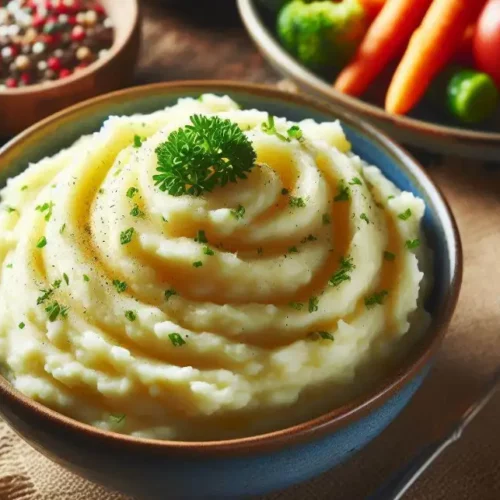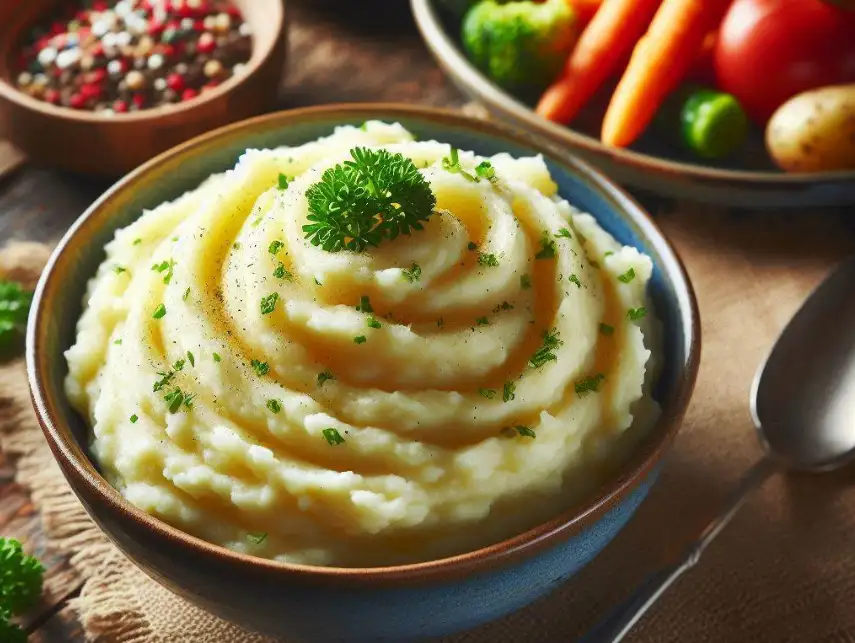Before discovering the secret to better mashed potatoes, you might have relied on the traditional water-boiling method, resulting in a less flavorful dish. After trying this new approach, you’ll create rich, creamy mashed potatoes bursting with indulgent flavor, thanks to cooking them directly in milk. Ready to elevate your mashed potatoes? Here’s everything you need to know about perfecting this ultimate comfort food.

Mashed Potatoes Cooked in Milk Recipe
Ingredients
- 4 pounds Yukon Gold potatoes peeled and cut into ½-inch chunks
- 5 cups whole milk plus more as needed
- 8 tablespoons salted butter 1 stick, cut into pieces
- Kosher salt and freshly ground black pepper to taste
Instructions
- Combine potatoes, milk, and 2 teaspoons of salt in a large saucepan or Dutch oven.
- Bring the mixture to a simmer over medium heat. Reduce heat to low and cook, uncovered, stirring often. Cook until the potatoes begin to fall apart and most of the milk is absorbed (about 40-50 minutes).
- Remove from heat, add butter, and mash the potatoes until smooth. Thin with additional milk if necessary.
- Adjust seasoning with salt and pepper. Serve warm and enjoy!
- Pro Tip: Avoid low-fat milk, as it can break during simmering. Whole milk ensures a creamy texture without splitting.
Why Cook Potatoes in Milk?
Cooking potatoes in milk serves several purposes:
- Flavor Enhancement: Potatoes absorb the natural sweetness and creaminess of the milk, making them taste richer.
- Retained Starch: Unlike boiling in water, where starch is lost, cooking in milk keeps the starch intact for a velvety texture.
- Efficiency: This method eliminates the need for heavy cream or additional dairy, simplifying your ingredient list.
FAQs About Mashed Potatoes Cooked in Milk
1. Is it healthier to cook mashed potatoes in milk? While cooking in milk adds calories compared to boiling in water, it also provides a source of calcium and a creamier texture without the need for heavy cream. Moderation is key for a balanced diet.
2. Can I use other types of milk? Yes! Alternatives like almond milk, oat milk, or coconut milk can work if you’re lactose-intolerant or vegan. However, the flavor and texture will differ slightly.
3. Should I rinse the potatoes? No. Rinsing or soaking the potatoes washes away their natural starch, which is essential for achieving creamy mashed potatoes.
4. What if I don’t have milk? Substitute with heavy cream, half-and-half, or even broth. Coconut milk also adds a unique flavor for a dairy-free option.
5. How do I avoid gluey mashed potatoes? Over-mashing or using a food processor can overwork the starch, leading to a sticky consistency. Stick to a potato masher or ricer for fluffy results.
Tips for Perfect Mashed Potatoes
- Use Yukon Gold Potatoes: Their balance of starch and moisture yields the creamiest texture.
- Don’t Overcook: Boil until fork-tender, not mushy.
- Season Gradually: Salt and pepper should be added throughout the cooking process for even seasoning.
Variations and Serving Ideas
Flavor Enhancements:
- Add Parmesan, garlic, or fresh herbs (rosemary, thyme, parsley) for an elevated taste.
- Mix in cheddar or cream cheese for extra richness.
Serving Suggestions: Mashed potatoes cooked in milk pair beautifully with:
- Roast turkey or chicken
- Meatloaf
- Grilled vegetables
- Brown gravy or a drizzle of melted butter
Storage: Leftovers can be refrigerated for up to 4 days. Reheat on the stovetop or microwave, adding a splash of milk to restore creaminess.
Freezing: Freeze individual portions for up to 2 months. Thaw overnight and reheat gently.
Final Thoughts
Mashed potatoes cooked in milk are a versatile and indulgent side dish perfect for any occasion. With the right technique and a few tips, you’ll master this recipe and impress your guests every time. Try it today and experience the difference milk can make!

